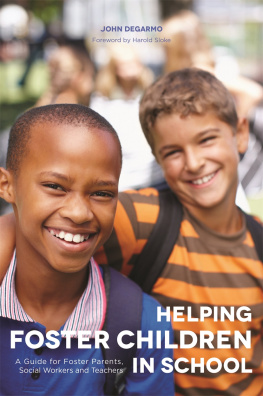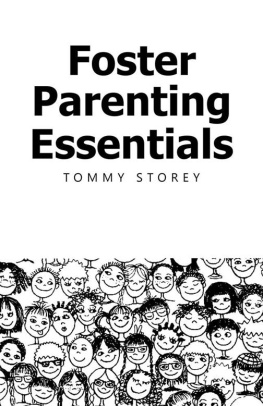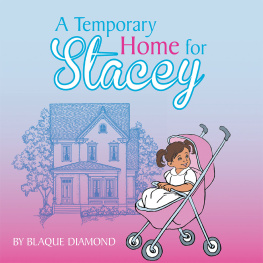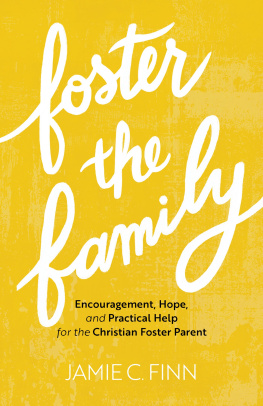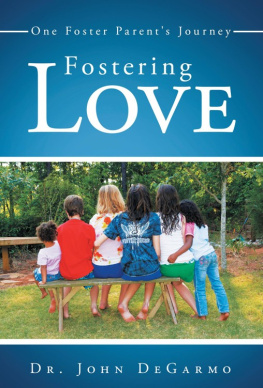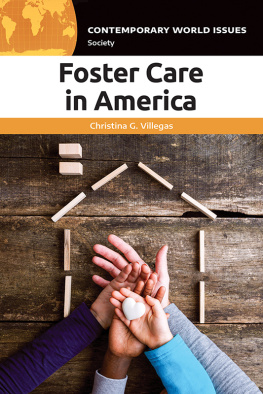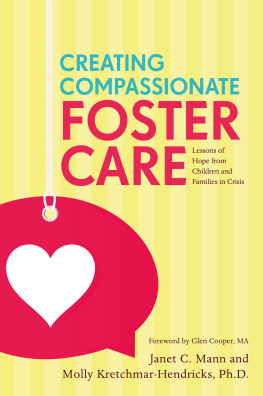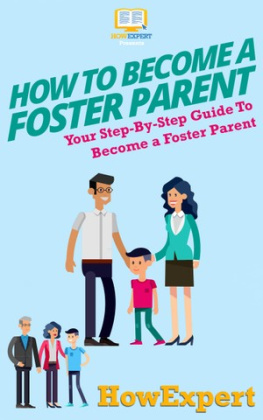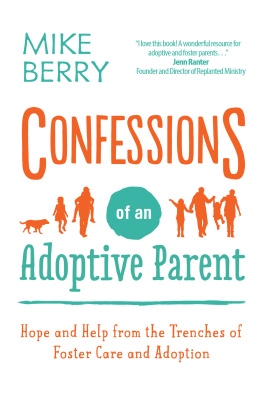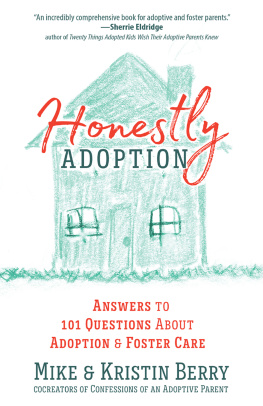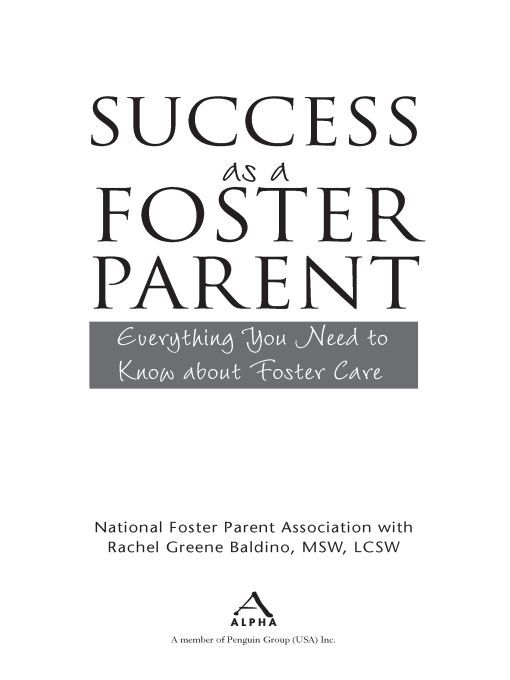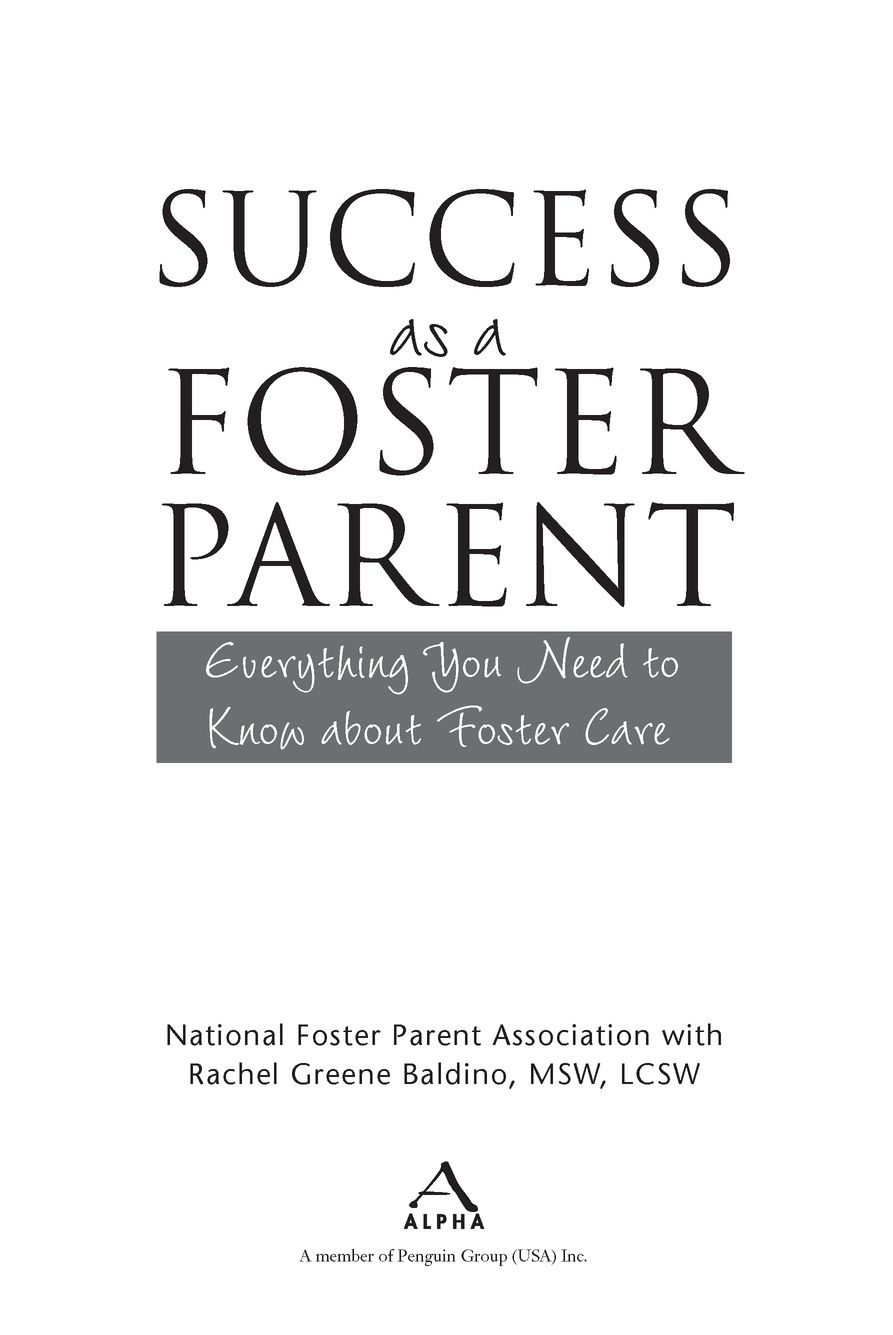Table of Contents
FOREWORD
I have been a foster parent for the past 32 years, and I served as president of the National Foster Parent Association (the organization that coauthored this book) from 1996 to 2000. In addition to having fostered many children over the years, my husband and I have two biological daughters and two adopted sons.
Simply put, foster parenting is my lifes work, my calling. I feel so blessed to have worked with many wonderful foster children over the years. All of them have taught me so much and given me so much, and I will be forever grateful that these children and my family have beenand continue to besuch important parts of one anothers lives.
Allow me to share some stories from my life as a foster parent: stories that I hope will inspire you and motivate you to pursue becoming a foster parent. My first story begins in 1993, the year my husband and I took in medically fragile twin girls. One weighed 1.6 pounds and the other weighed 1.8 pounds at birth.
The twins were so fragile that they spent the first year of their lives going back and forth between our home and the hospital. Both had feeding problems and shunts in the backs of their heads. One had difficulties with her shunt in addition to all of her other medical problems. We fostered these beautiful twin girls for three years, at which time the parental rights of their biological parents were terminated, and they became available for adoption.
During these three years, one of our adult daughters and her husband had been serving as the twins respite foster parents to give my husband and me periodic breaks. My daughter and son-in-law did not have children of their own. Once the girls became available for adoption, we discussed the situation as a family. We also conferred with the Kentucky Cabinet for Health and Family Servicesknown to Kentucky foster parents simply as the Cabinet. I am happy to report that the children were ultimately adopted by our daughter and son-in-law.
The twin girls, age 14 at the time of this writing, are now our beloved adopted granddaughters. They still have shunts in their heads and some other medical challenges, but, generally speaking, they are thriving, happy teenagers. I have to say, its wonderful being their Grandma and Granddad. No discipline required, just love!
My second story takes place in 1975, the year my husband and I began fostering. Our own biological daughters were three and six at the time, and we were hoping to foster other small children. But the first call we received was a request to take in an 11-year-old girl who had run away from home. In a small-world twist, it was our nephew, a deputy sheriff in town, who had found the girl and brought her to the attention of the authorities. When this young girl first entered our home, she had not been to school for five weeks.
Ultimately, she stayed with us from the ages of 11 to 19, in a program once referred to as permanent foster care. The parental rights of her biological parents were never terminated, which meant that she never became available for adoption. However, because of this permanent foster care arrangement, she was able to live with us rather than with her biological parents during her adolescent years. And did she ever thrive! For starters, she graduated from high school with honors. Eventually, with help and encouragement from us, she moved into her own apartment across the street from our home. Before moving into her apartment, she had worked for a full year at a McDonalds restaurant, saving half of her earnings to put toward future rent.
We were (and are) very proud of her. We admire her maturity, her strong work ethic, and her deep sense of responsibility. At the time, there was no formal name for what we did to help her get started as a young adult, with her first job and her first apartment. Nowadays, this process is officially referred to as finding an independent living situation for former foster teensnow young adults.
Later on, this young woman went to work in our dentists office. Eventually, she met and married a young man who joined the Marines and they ended up in Hawaii. As I write these words, she is 43 years old and still living with her husband in Hawaii. He is now out of the service, but continues to work for the Marines in a civilian capacity.
During her time in foster care, we always made sure that she had regular visitations with her biological family. As I often say, Children can never have too much love in their lives. And now, as an adult, she maintainsand cherishesher strong ties with us and her biological family. Whenever she returns home to Kentucky, she stays with us. She also visits several members of her biological family. To this day, she is a lovely, thoughtful woman who always remembers everyones birthdays and holidays and other special occasions. We treasure having her in our lives.
For my third story, Id like to talk about a special day back in 1986 when we received a call to care for a medically fragile premature infant. He weighed three pounds and was on an apnea monitor because he was having breathing difficulties. We gladly took him in and he stayed in foster care with us for three years. He was then reunited with his mother, who happened to be pregnant with a little girl, although no one knew this at the time.
The biological mother allowed her brother to take the little boy for a while, but eventually she wanted him back. Arrangements were eventually made for the boy to live with his biological mother during the school year. He spent holidays and summers with us.
When he turned 15, however, things fell apart at his biological mothers home, and he had to return to our home on a more permanent basis. He was in high school at the time and was enrolled in special-education classes. However, after spending time with him, we became convinced that he did not belong in the special-education program. We requested that he be tested, and his test scores proved us right. Our educational advocacy on his behalf really paid off. After having been mistakenly enrolled in special-education classes all those years, he was moved into the regular classroom curriculum.
Around that same time, he entered the ROTC program. After graduating from high school, he went on to attend Mid-Continent University, a Christian liberal arts institution in Mayfield, Kentucky. He completed his course work and graduated in three and a half years, rather than the standard four. He is interested in studying to become a pastor, and in pursuit of that dream, he hopes to go to graduate school to earn his masters degree. This young mans younger sister, now age 14, lives with us. She has also entered the ROTC program, and she plans to follow in her brothers footsteps by going to college after she graduates from high school.
Now that Ive shared a few of our many foster parenting success stories, Id also like to offer some thoughts, observations, and suggestions about the foster care system in general. For example, one 14-year-old boy came to us from a neglectful home. While living with us, he did extremely well in school, earned excellent grades, and joined ROTC. He is now proudly serving his country as a Marine. When he comes home to Kentucky, he stays with us and visits with his biological family members.
Unfortunately, the Kentucky Cabinet for Health and Family Services terminated his biological parents parental rights when this young man was just three months shy of his 18th birthday, because the Cabinet was in the process of terminating his parents rights to his younger sister. While child welfare departments have the best interests of children in mind, they are composed of human beings, and human beings sometimes make mistakes. I believe that it simply did not make any sense for this young man to become available for adoption so close to his 18th birthday.


